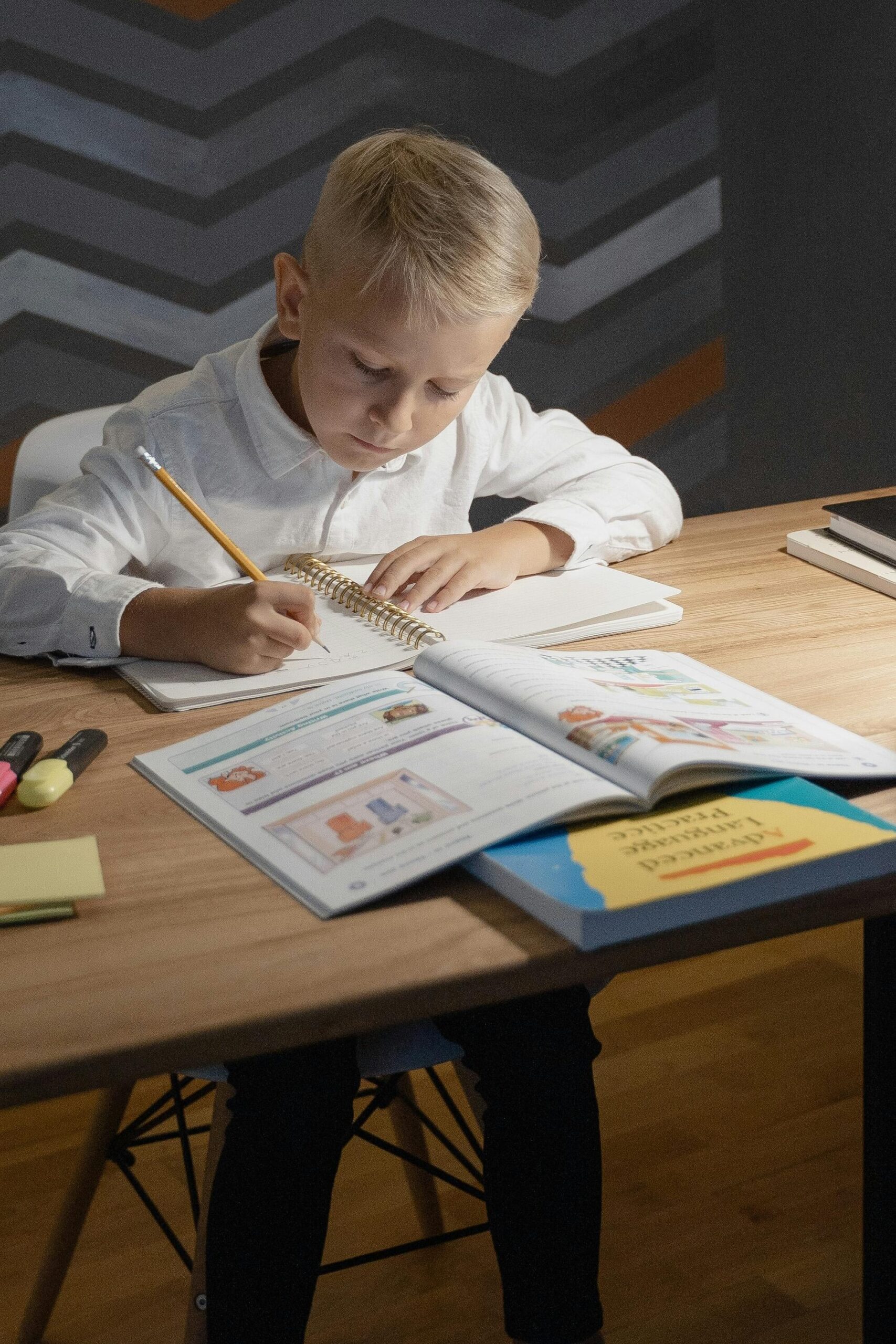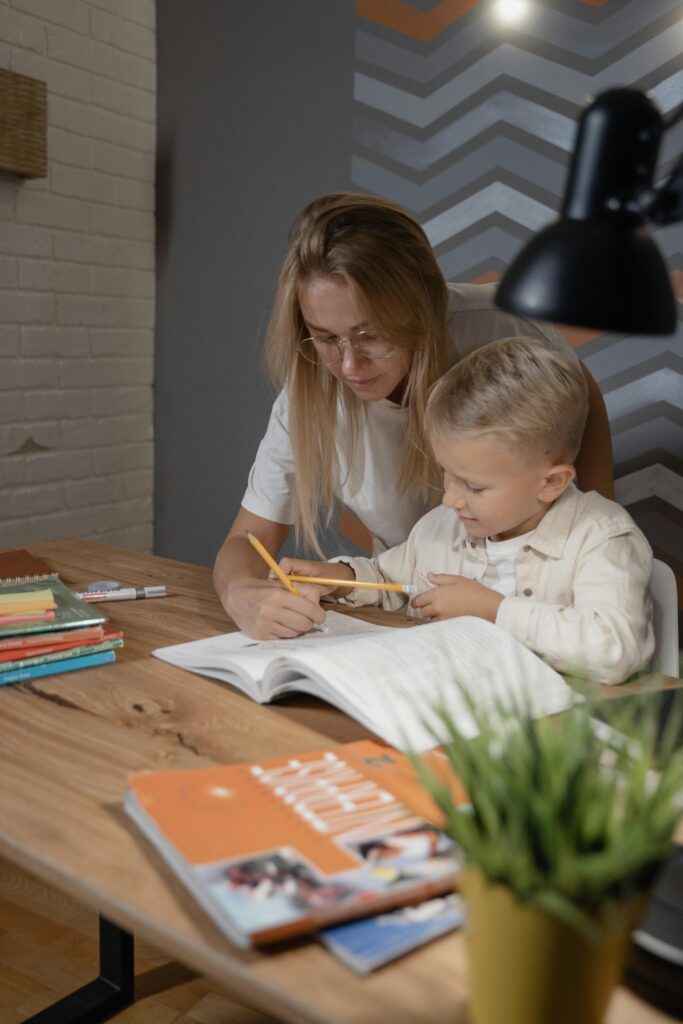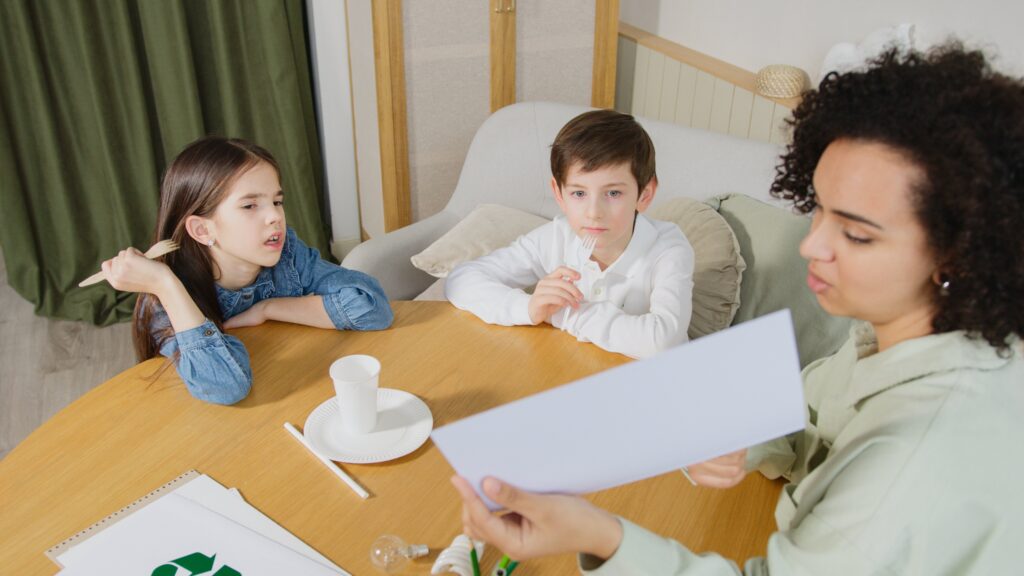If you’ve ever felt that your children were given to you by God for a specific purpose. Read on. If you feel a calling to bring them home with you but aren’t sure what comes next, then this post is for you!
I understand what it feels like to have friends and family who would think your decision to educate your children at home is an inferior plan.
When we listen to the Spirit’s gentle leading instead of the voices that would keep us from our calling, we can be confident in our decisions. This is especially helpful when difficult days come.
Keep reading if the desire to learn how to start homeschooling your family has been on your heart lately. You can do this one step at a time.
1. Have A Purpose
Like any big decision in life I would encourage you to make this decision with your husband’s blessing and full support. It is also important that the two of you are united on a purpose or mission. Make certain that you are clearly running toward something vs. running away from something.
This mission will help carry you through when learning difficulties arise. Johnny won’t magically know how to multiply or read at home on Day 1 just because you are now homeschooling. Have a firm resolve that home education is your mission for this season and rise to the occasion.
It is perfectly all right for you and your husband to re-evaluate this mission annually. Take your homeschooling on a year-by-year basis rather than as a life-sentence if that is your current attitude. You may just find true delight in your children and never look back!
Lastly, write down your mission. It is so helpful when you can see the written words right in front of you and be reminded and encouraged by them. It is revitalizing on difficult days to remember that you are educating with purpose for a specific result. Hold onto that purpose and run with it!
And the LORD answered me, and said, Write the vision, and make it plain upon tables, that he may run that readeth it.
Habakkuk 2:2
2. Have A Plan
A plan, never leave home without it.
Here is where the waters could get a little murky, but I will do my best to keep it simple for you in this post. However, you can find a lot more detail and many resource links in this free How to Start Homeschooling Guide. I wrote this eBook as a handy reference for everything I wish I would have known to ask when I started home educating my children in 2007. There have been many changes to our homeschooling life since those first days. We navigated our way through without a guide. You don’t have to.

Know yourself.
Even if you don’t yet know your child’s learning style, it is important to know yourself. How hands-on do you want/need to be with their learning? Answering this question will give you a great starting point when you begin to look at curriculum.
However, we are not yet looking at curriculum until we get a general idea about what style and method of home education you want to engage in. We will discuss a few examples of this below, but I want to make one point clear that I feel very strongly about. Homeschooling is not doing “school” at home.
You left that inferior dynamic for good reason, do not be tempted to look back and mimic the style or tools of the public education system. You and/or your children may benefit from an ordered routine, but the similarities really do end there. If your goal is truly a rich and varied education for your child(ren), then be careful not to confuse schooling with actual learning. When learning is taking place, not teaching, that is real education.
Know your choices.
Take a break and get a cup of tea if you already feel your head swimming. It is about to get deep in here, but that’s all right. You’re a great swimmer. Let’s take a look at some of the options you’ll need to consider as you learn how to start homeschooling.
Below I have highlighted several of the popular education methods and styles that are available to you. Since this is meant to be an “easy how to” I have not given any of these the full investigation and description that could be given. If one seems to resonate with you, do not hesitate to strike out on your own learning adventure.

Online Education
While not really a style per se, I guess online education could be viewed mainly as a method. Many options exist now for using the internet as a tool for educating our children. Like all tools, this can be good or bad. For example, if you will be giving birth to twins early this school year, knowing your lesson planning and preparation has been done for you is very helpful. All you have to do is make sure your students show up to class. This tool may also be helpful during a period of extended illness such as caring for an aging parent. Again, lessons are covered. You are just there to verify and supervise.
Alternatively, if you are concerned that your child is already spending too much time on screens, then maybe this option is not for you. Using the internet as a tool is not an all or nothing proposal. For example, we have used YouTube, TED talks, and various streaming documentaries to supplement our learning in history, science, and math. There are literally hundreds of apps for learning math skills and formulas. Wisdom calls for you to be the master of the internet as a learning tool, rather than allowing it to master you.
Secular or Christian Education
The options here have been lumped into these two headings as it is assumed the readers of this blog are Christian homemakers. If not, no worries, there are also many curriculum publishers that cater to Catholic families, Muslim, Mormon, even pagans these days. While I would not say there is any curriculum that is neutral since all publishers are producing materials with some sort of worldview, there are still a few remaining straightforward publishers. Be discerning in these areas. You will soon see that modern thought and social experimentation has invaded even subjects as mainstream as Language Arts and Arithmetic.
On the flip side, if your goal is to be diligent about educating your children with at biblical worldview, you are going to be delighted with your options. What a blessing it is to be overrun with good options these days for training our children. Too many options vs too few is preferable any day.
Classical Education
As the name indicates, this educational philosophy employs the reading and discussion of many of the classic works of literature and art. Learning is broken up into levels with the premise of each level building incrementally on the one that came before as the child’s reasoning is developed. Children are exposed early to concrete thinking and reasoning via the works of many of the great minds that came before.
Classical education is both broad and deep. There is a reason this method is popular and has stood the test of time. Critical thinking skills are exercised and put to use in every aspect of the curriculum. For the right mind, this is anything but boring.
If you know you have a child that would benefit from this challenging style, do not shy away from it just because you think you aren’t educated enough to be a good teacher for them. You still serve a great purpose in this pursuit. You can either be an advisor and allow the masters to educate or you may choose to dive in and gain the education you always wanted right alongside your children. What an excellent example of the learning lifestyle!

Traditional Education
Perhaps you went to a Christian school growing up. If so, this is likely the educational approach you are most familiar with. Most teacher and textbook type curricula employ a traditional education approach. Learning is incremental, often centering on a spiral vs a mastery approach. Children are exposed early to the memorization of facts and rules that they can use as tools.
Traditional education is somewhat broad but not necessarily deep. This style allows many children to become successful as long as they are good at memorizing facts such as names and dates. Critical thinking skills are not as highly developed since the focus is placed on returning the correct response rather than a well-reasoned response.
Most children without learning disorders will find success with this method. If you are interested in a just-the-facts, no nonsense educational approach, then traditional education methods will likely serve your home education goals excellently. However, if you desire your child to be able to communicate effectively in written essays and to be able to articulate their thoughts with precision, be sure to place additional emphasis on literary criticism, not merely reading comprehension.
Eclectic Education
Sometimes I have heard this described as the approach for free-spirited moms. Personal experience has led me to see that this is not actually an accurate portayal of the term. Neither is this the method of choice for dis-organized moms, but rather the choice of the practical or tuned-in mom. As you investigate how to start homeschooling your children you will soon realize that while one method sounds good for Mia it simply will not work for Emmie and vice versa.
This is because God created us in His image, but gave each of us our own unique design. From our favorite color to our favorite subject we are unique, special, image-bearers. Your job as a home educator is to design a learning pathway that will suit each individual in your home. Enter the eclectic style.
Maybe in your home this looks like everyone can do Science and History as a family, but you will use a traditional Math curriculum with textbook for Mia while Emmie does a very hands-on Math with you because she is a kinesthetic learner and benefits from lots of manipulatives. Just another word about our good God. He likes to grow us as moms too. What works one year may not be right the next. Be flexible, be tuned-in, be eclectic.
Another reason many choose the eclectic method comes right down to family size and budget. A typical boxed curriculum can cost between $300-$500 per child. If they are not using all of what is included because is does not work for them, then that is not good stewardship. Do not feel pressured to use something that is not working simply because you paid a lot for it. Be sure to investigate thoroughly, begin with the end in mind, and choose wisely.
Using a spelling method from one publisher, history from another, and math from a third is very common. This is eclectic homeschooling at it’s finest and allows you to cater to the learning goals and needs of each child. You can read more about that in this post. While it is not an easy answer to give when someone learns that you homeschool and then asks what curriculum you use, this method can be the best. You can confidently respond that you use a carefully curated selection of methods and tools that are perfectly suited to your child’s education.

Charlotte Mason Education
Charlotte Mason is the name of a 19th century British educator. Her ideas have influenced modern homeschooling families and private institutions greatly. Her opinion that children are created whole persons and should be interacted with and educated as such makes excellent reason. She had little use for baby books and “twaddle” but insisted upon the use of whole books and ideas taught in short but deep lessons.
This method encourages the child to then internalize what they have been presented with and then narrate back what they have learned in their own words. Many homes that implement a Charlotte Mason education have done so with great success for all learning styles. The only shortcoming one might find is in the lack of demonstrable worksheets as evidence of education. However, a brief conversation with any child from a Charlotte Mason background will quickly settle whether or not demonstrable learning has taken place.
Although Charlotte Mason’s death was in the 20th century it is comforting to know that her philosophy lives on. Interest in habit-training and homeschool Nature Study groups are soaring. Anyone desiring to learn more about implementing some or all of her methods into their homeschool will gladly find an abundance of help and support online. Remember, the internet makes an excellent servant but a terrible master.
Un-schooling and the Learning Lifestyle
A word on the popular term un-schooling and its approach. Un-schooling is not simply “not doing school” as is sometimes thought. This is the problem that arises when the words schooling and education are used interchangeably. One does not equal the other. It is likely that you will need to take part in a bit of un-schooling for yourself and your children as you learn how to start homeschooling. While I dislike the term homeschool very much, not many mothers are out there searching how to home educate.

If your children have been to school, it will be very likely that they (and you) have an idea in their minds about what school is supposed to look like. Charts and desks do not make learning happen. Be sure to prepare yourself and your children for initiation into the learning lifestyle. If you are leaving the school system mid-year, or you will not be returning after the summer, take a few days/weeks to teach yourself and your children how to learn.
Visit libraries and museums nearby. Tour the local botanical gardens and monuments. Re-discover for yourself and your children the delight of wonder and the tools of learning: how things grow, why a monument was placed here, and where something is made.
The key to a successful learning lifestyle is the masterful balance between planned educational pursuits and capturing the circumstances and conversations of life and using them as educational tools. How can we seize these opportunities if we are not with our children?
And thou shalt teach them diligently unto thy children, and shalt talk of them when thou sittest in thine house, and when thou walkest by the way, and when thou liest down, and when thou risest up.
Deuteronomy 6:7

It’s all right if things don’t go exactly as planned when you begin this journey. Allow plenty of grace for yourself and your children as you walk this new path. Soon you will wonder why anyone would ever put their child on that yellow bus when this beautiful lifestyle is the alternative.
3. Have A Place
A place for everything, and everything in it’s place. Sounds a bit like Mary Poppins, right? Do not allow lack of space to keep you from pursuing home education for your family. While you do not have to have an entire room dedicated to homeschooling, you will need some space. A loft, a cabinet, a clear table, the couch and a storage ottoman, or yes, an entire room. Any of these will work as your family figures out how to start homeschooling.
Your Materials
Whether you are using books, tablets, laptops, or dry-erase boards you will need a designated space to put these items away when they are not in use. Clutter and disorder can quickly steal your joy. Make sure you have a place to put your homeschool materials away to help keep a separation between school time and just being home.
Several families have found an old armoire or entertainment center provides adequate space for stowing away school supplies and books. Maybe each child can keep their things in a milk crate or on a special shelf of an empty bookcase. You might even be inspired by something you see online. The most important thing is that you have a spot so nobody is wandering around the house during school time looking for their pencil.
It may take a little extra training to get your children used to putting their books and things away, especially if they are accustomed to having a worksheet passed out to them and then collected in a classroom setting. If you haven’t already, teach them to value and treasure books. You will be investing in a lot of them as part of the learning lifestyle. Leaving books lying about with pages spread open is a good way to shorten their shelf life.
Your Records
Your records are separate from you homeschool materials. Requirements for these will vary from state to state so be sure to check with HSLDA for your state’s requirements, Attendance records, testing results, curriculum ideas, planning and transcripts will all need to be stored by you in a safe location that is not likely to be lost or forgotten.
A word on testing. Fewer and fewer states are requiring academic testing as part of their legalities for homeschoolers. That is because the homeschooled students outperform the public school students by a huge margin every single time. Families really are doing an excellent job learning at home and you can too!
Your Activities
Do you have a place for your learning activities? A sofa for reading, a table or desk for writing, a board or screen for demonstrations and teaching; all of these are common but necessary sites that allow for focus and concentrated effort on learning pursuits. Yes, it is true that learning can happen anywhere, but you should also take time to create designated spaces. A designated space tells your child that learning is important.
Lately, a lot of the public education budget has been shifted away from learning activities that are no longer considered essential. Some examples of this are music, art, penmanship, and P.E. Do all that you can to make time in your homeschool schedule and budget for each of these, if possible. Each one of these pursuits should be considered essential homeschool activities.

It’s time to figure out how to start homeschooling.
Now is a great time for you to start homeschooling your children. Never before has there been this much access to information and support for homeschooling families. An entire economy has been built around businesses that support and provide books, equipment, aids, and curriculum for homeschoolers.
You don’t have to do this alone. Why wouldn’t you want to provide your family with the very best educational opportunities you possibly can? Endless opportunities are only a quick internet search or a visit to your local library away.
A word of caution. Do not be tempted to Copy and Paste someone else’s homeschool curriculum plan or schedule. Just like using someone else’s homemaking routine doesn’t work in your home, following someone else’s plan will not work either. That is because you have a different home and family dynamic than they do. Public school is a one-size-fits-all solution, home education is not. Go out and glean all the hacks and habits that you can from successful homeschool families, then make your own plan that suits your home.
I find great joy in welcoming new families to the homeschool space each year. Your family is no exception. We are so glad to see you here at the start of your journey. I pray you find many blessings and untold success as you endeavor to bring up your children in the nurture and admonition of the Lord.
Share your thoughts with us below!

